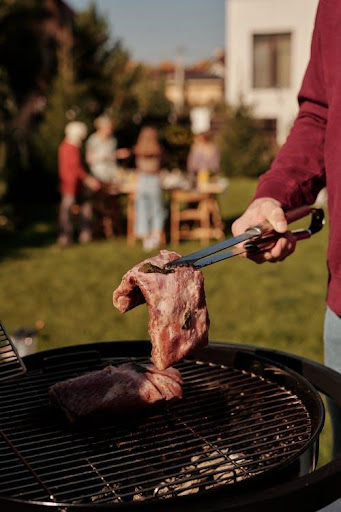Cooking outdoors is one of the most quintessential activities of Summer because it is a great excuse to get out and enjoy the nice weather! However, if you’re in the market for a grill, it can be scary to find out all the different types there are and differentiate between all the models on the market. Therefore, it is important to shop at trusted sources and utilize their expertise, such as that found at Watson’s Grills online website. Here, we’ll also explore the pros and cons of each type of grill so you can gain a general overview of each yourself.
Charcoal Grills
One of the most accessible grills, charcoal grills are a classic option for their low cost and high portability. Some grilling experts say that the taste captured from the charcoal smoke is especially unique to charcoal grills and cannot be recreated with other types of grills, so if you’re looking to capture the classic flavor you associate with your favorite grilled meals, charcoal grills might be a good place to start.
However, this does not mean that they are without downsides. To start, they require a bit more careful attention than other types of grills since they cannot be “turned off” like gas or electric grills can. They instead must be extinguished by either closing the lid and ventilation or carefully spraying with water. Each of these methods have their pros and cons as well: if you decide to simply close the lid, the grill will be more difficult to clean, but if you extinguish it with water, you cannot reuse any semi-used pieces of charcoal for the next time you decide to grill. Therefore, determining whether you care more about easy cleanup or getting the most out of your charcoal should inform the cleanup method you use.
Gas Grills
Gas grills are seen as an alternative to charcoal grills for the chef who values easier cleanup and temperature control. Gas grills can provide a more pleasant grilling experience because they take away some of the hassle involved with charcoal grills. Gas grills, by definition, don’t produce the smoke some avid grillers insist make charcoal grills superior to gas ones, but there is debate within the cooking community as to how significant this difference is. Additionally, there is less time in setup, as gas grills ignite at the push of a button—a far less time-intensive ignition process than that associated with charcoal grills.
Then again, there are cons to gas grills as well. They can be prohibitive to even chefs who would otherwise choose gas over charcoal due to their often-large size and higher cost. Though, depending on how much you plan to use your grill, the higher cost of charcoal compared to gas could make up for the initial price difference. Additionally, it is difficult to maintain lower temperatures using gas, so if you plan on slow-cooking, gas might not be right for you.
Electric Grills

Electric grills, though much less popular than charcoal or gas, are the most convenient for those living in small spaces. They can be used both inside and outside, whereas both charcoal and gas grills should be kept outside to minimize the risk of unintended fire. They also are generally much smaller than both charcoal and gas grills.
However, choosing an electric grill might limit your capabilities when grilling. Since they use electricity, they do not get as hot as gas or charcoal, which makes it unideal for searing meats. However, they have easier temperature control and, unlike gas or charcoal grills, can easily maintain lower temperatures.
Pellet Grills
Pellet grills are a type of grill which use wood pellets as a fuel source, but less simply than charcoal grills do. Instead of being directly burned in a pot underneath a grill plate, the wood pellets are placed into a separate chamber and moved by the grill into a burn pot when they’re needed, and electric fans underneath blow the smoke up. Additionally, since they utilize electric components in addition to wood pellets, they have great temperature control. Click here to know more.
Kamado Grills
Kamado grills are unique from the types discussed up until now in that they do not necessarily differ based on fuel source; rather, kamado grills refer to a specific shape and material. While they are most often fueled with charcoal (though, not the charcoal briquettes normally used by charcoal grills, but rather lump wood charcoal), there are commercially available kamado grills that use either gas or electricity. What makes a Kamado grill unique is that it is made with ceramic, which holds high temperatures very well, and they have a design which promotes airflow within the unit. Kamado grills’ ceramic structure make it possible to use them even in cold weather or rain, making them ideal for the all-seasons griller.





